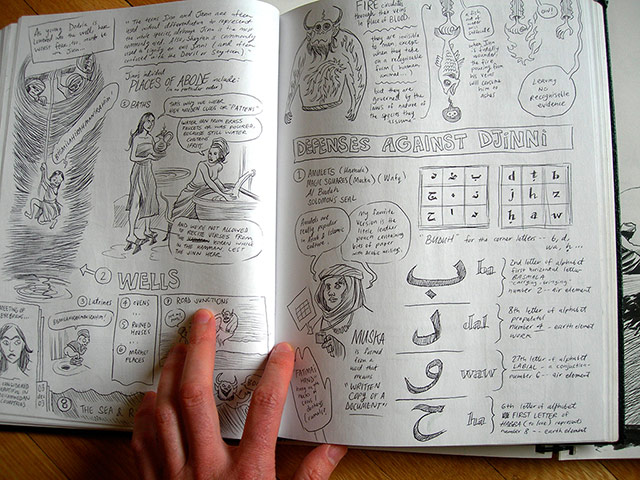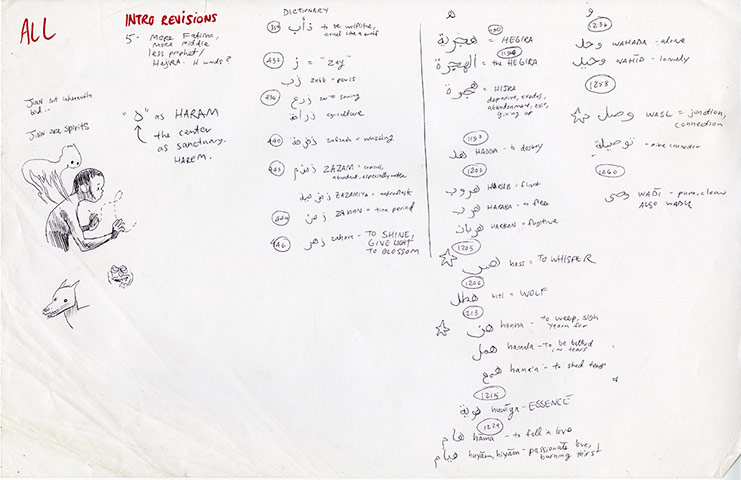I've mentioned my co-taught introductory lecture course, "
God, Guns and Chocolate: The Iberian Atlantic, 750-1750"
several times already in this space. What I'm not sure that I've mentioned, though, is that it is a bilingual class. One of the major goals of the course is to allow prospective Spanish majors to get a sense of what's out there rather than keeping literature and history as a sort of mysterious thing, under wraps, available only to people with a certain level of language skill. We're trying to get away from the traditional model that a Spanish department is a service department, the place where you go to practice your Spanish, and that's all there is to it. However, collectively, we also don't want students who can (either because they're already majors or because they're heritage or native speakers or because they've studied abroad, or what-have-you) to not have the opportunity to practice their Spanish. It's a really delicate balancing act between teaching language and content.
To me it makes perfectly good sense because that's how things are done in Near Eastern Studies-type departments in the US: You may read in the original or in translation (depending on the level and nature of the course) but the discussion is in English.
The way that we have decided to strike that balance here is a little different: Each week, either my colleague or I lectures in English for 75 minutes on Tuesday. Then on Thursday, students have the option of attending recitation section for an additional 65 minutes either in English or in Spanish. (Just to clarify, the option is between the two sections, not attending section or not.) It takes students a little while to wrap their heads around the fact that as a native English speaker with an exceptionally WASPy name (who happens to be Slavic and Jewish in spite of the name, though they don't know that piece of it — it's personal, most of all, and why complicate an already complicated game of identity politics?), I don't always teach all the English sections, and as the native Spanish speaker with a very Spanish name (who has a likewise complicated identity, but that's not my story to tell), my colleague doesn't always teach all the Spanish sections. But we explain to them that as the expert in the medieval material, I'm in a much better position to discuss the medieval material with them, and as an expert in the Latin American material, my colleague is in a much better position to discuss that material with them. We tell them that this arrangement is more beneficial to them. We tell them that I wasn't hired by NYU because I am a native English speaker but because of my command of a certain kind of material, and my colleague wasn't hired by NYU because he is a native Spanish speaker but, again, because of his command of a different kind of material. A few students will, inevitably, not get on board with this, but most of them, after a few repetitions of that little spiel, do come around.
But this all poses some interesting questions about assigning readings that wouldn't come up in a monolingual class. Last semester, we made readings available to all the students in the class in both English and Spanish. It really didn't work: Students came to the Spanish section having done the reading and having thought about the problems in English, and familiar with little of the relevant Spanish vocabulary, both of the technical and non-technical variety.
In other words, I spent a lot of time listening to students' opinions about "los personajes en los books of chivalry" in spite of the fact that we did not make it difficult for them to figure out that
libros de caballería was the term they really needed. (There were carefully crafted vocabulary lists involved.) Sentences like this always remind me of an anecdote that a friend of my parents told after spending a year living in Israel: She was in the gym one day and found herself near two Orthodox women getting dressed in a huff, and she overheard one of them saying to the other in a really thick New York accent: "I-efshar la-'asot
spinning 'im gever, ve-i-efshar la-'asot
spinning ba-
skirt!" (
It's not possible to take a spinning class taught by a man because you can't do spinning in a skirt!) Normally, I'm fascinated by mid-sentence code-switches. But if you're teaching a section of a class whose explicit purpose is to serve students who want to improve their language skills, then it's a bit irritating to have students who aren't even trying. And I don't mean I'd be irritated by a student forgetting or not knowing the right word. Lord knows it happens to me! It was just the systemic disregard of the language and the total lack of effort being put in — we had some issues with this class last semester.
So this semester, we've decided to make only Spanish readings available to the students in the Spanish recitation section, wherever possible. In other words, if there's a secondary article that one of us really wants to use that was written in English and doesn't exist in translation, we'll use it in the Spanish section regardless. Students in the English section have access to both the English and Spanish readings because some of them wanted to take the Spanish section but couldn't because of scheduling, and because others thought that maybe they'd like to try one or two readings in Spanish but weren't confident enough in their language skill level to enroll in a whole Spanish section. Next week is the first week I am teaching the class; it was my colleague's week last week. And now, I"m grappling with this split that we're supposed to be enforcing because in addition to some secondary readings, I also want my students to read a short excerpt from a late-thirteenth century
enxiemplo (exemplum). But I also don't want a whole pile of them to freak out and drop the course because they are confronted with sentences like "Et acaesçió que, estando un día folgando, que tañían antél un estrumento de que see paraga mucho los moros, que a nombre albogón. Et el rey paró mientes et entenió que non fazía..." and don't know how they'll be able to manage in a course that would throw material such as this at them all term. (And actually, I think they're only going to read three short excerpts of medieval Castilian texts in the original this semester; but there's a method to that madness.) So what I'm thinking about doing this week is distributing that piece of the reading in lecture on Tuesday (in other words, not even putting it up on Blackboard where they might or might not see any directions that I'd post up along with it), make some time during class for them to read it in English and have a little preliminary discussion that fits in with the lecture, and then admonish the students in the Spanish section that they must attempt to read the Castilian version for class on Thursday, and that it's going to be really hard, but it'll be hard for everyone and that we'll go over some tricks and tips in class to make it easier. I'm worried they won't do it and that then I'll have to fill an hour+ of time. In a language of which I'm not a native speaker.
That last bit is a little daunting but not actually a problem. It's more the principle of the whole thing: What's the optimal order in which to give students access to texts to ensure that they read optimally?


















